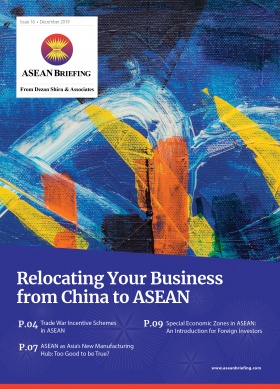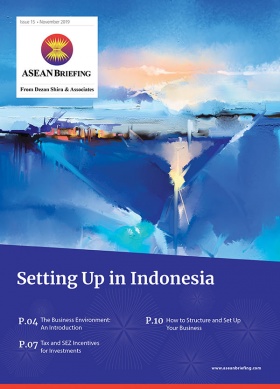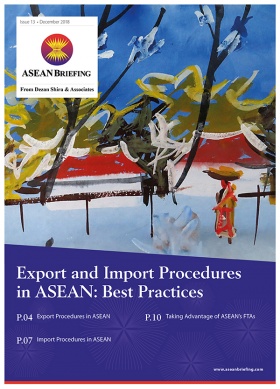Indonesia’s Palapa Ring: Bringing Connectivity to the Archipelago
- Indonesia has completed the Palapa Ring project, which aims to provide the country with 4G internet access.
- At a cost of US$1.5 billion, the project features more than 35,000km (21,747 miles) of land and sea cables.
- The government hopes the project will improve connectivity and increase economic development, particularly in outlying regions.
In late 2019, the government announced the completion of the Palapa Ring project – a priority infrastructure project that aimed to provide access to 4G internet services to more than 500 regencies across the country.
The project is estimated to have cost US$1.5 billion and comprises of 35,000km (21,747 miles) of undersea fiber-optic cables and 21,000km (13,000 miles) of land cables, stretching from the westernmost city in Indonesia, Sabang to the easternmost town, Merauke. Additionally, the cables also transverse every district from the northernmost island Mianagas to the southernmost island, Rote.
Through the Palapa Ring, the government can facilitate a network capacity of up to 100 Gbps in even the most outlying regions of the country.
Connecting the archipelago
Initial plans to increase connectivity between Indonesia’s islands began in early 1998; however, these plans were abandoned due to the Asian financial crisis that year.
The project was divided into three regions: west, central, and east. The western region was completed in March 2018 and the central and eastern regions were completed in early and late 2019, respectively. To further improve internet coverage, the government plans to install more than 4,000 base transceiver stations (BTS) in the most remote areas.
According to a poll conducted by the Indonesian Internet Providers Association (APJII), only 64 percent of the 270 million population was connected to the internet in 2018. Despite this figure, internet penetration is still one of the lowest in ASEAN compared to Singapore (84 percent), Brunei (94 percent), Malaysia (80 percent), and Vietnam (75 percent). Furthermore, at 200 Mbps per second, internet speed is also one of the slowest in the region, faster only to Cambodia.
Improving digital literacy
The government hopes that the improved internet connectivity can significantly impact industries across the country and encourage economic development.
Schools that can now access high-speed internet can improve the digital literacy rate and produce engineers and other tech talents that can advance the Information and Communications Technology sector. Greater connectivity will also provide opportunities in the financial technology market and increase banking penetration – less than half the adult population owns a bank account.
Increasing internet access can help government institutions stay transparent, particularly those in remote areas, by digitalizing public services.
Invest in a booming digital economy
With over 10 percent of Indonesia’s population indulging in online shopping, Indonesians are taking advantage of the lifestyle-changing web services that are now available.
The country’s e-commerce sector is valued at US$23 billion and has become one of the most dynamic in the world. A joint report conducted by Google and Temasek predicts that the industry will have a market value of US$53 billion by 2025.To better regulate this industry, the government introduced Regulation 80 of 2019 in November, the first and long-awaited law on e-commerce.
The new law obligates e-commerce entities to obtain business licenses and complies with prevailing tax regulations – key issues that have plagued the industry. Moreover, the regulation addresses the framework for online contracts and transactions, consumer complaints, and dispute resolutions.
With the completion of the Palapa Ring, investors should expect new income streams for digital businesses as Indonesia’s digital economy rapidly expands with the increased high-speed internet access.
About Us
ASEAN Briefing is produced by Dezan Shira & Associates. The firm assists foreign investors throughout Asia and maintains offices throughout ASEAN, including in Singapore, Hanoi, Ho Chi Minh City and Jakarta. Please contact us at asia@dezshira.com or visit our website at www.dezshira.com.
- Previous Article ASEAN as Asia’s New Manufacturing Hub: Too Good to be True?
- Next Article Malaysia’s National Automotive Policy 2020: Salient Features







